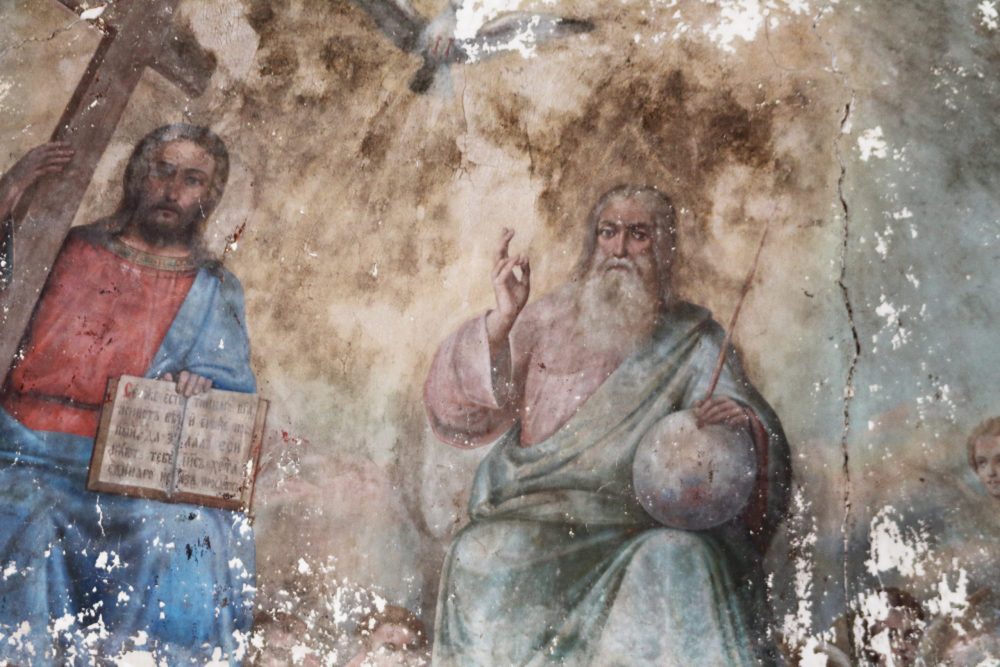Rev. José Mario O. Mandía
jmom.honlam.org
We know that one of the main reasons the Pharisees and Scribes were infuriated with Jesus is that He referred to God as His Father. Saint John records (5:18): “This was why the Jews sought all the more to kill him, because he not only broke the sabbath but also called God his Father, making himself equal with God.”
Jesus was only speaking the truth. He is not only truly man but truly God.
But we are not Jesus Christ. We are sinners, children of Eve. Who are we to dare call God “Father”? The CCC (2777) explains: “In the Roman liturgy, the Eucharistic assembly is invited to pray to our heavenly Father with filial boldness; the Eastern liturgies develop and use similar expressions: ‘dare in all confidence,’ ‘make us worthy of….’ From the burning bush Moses heard a voice saying to him, ‘Do not come near; put off your shoes from your feet, for the place on which you are standing is holy ground’ (Exodus 3:5). Only Jesus could cross that threshold of the divine holiness, for ‘when he had made purification for sins,’ he brought us into the Father’s presence: ‘Here am I, and the children God has given me’ (Hebrews 1:3; 2:13).
“Our awareness of our status as slaves would make us sink into the ground and our earthly condition would dissolve into dust, if the authority of our Father himself and the Spirit of his Son had not impelled us to this cry . . . ‘Abba, Father!’ . . . When would a mortal dare call God “Father,” if man’s innermost being were not animated by power from on high?’ (St Peter Chrysologus, Sermo 71, 3: PL 52, 401 CD; cf. Galatians 4:6).”
The Aramaic word “Abba” is mentioned three times in the whole New Testament: during Jesus’ prayer in the garden of Gethsemane (Mark 14:36) and again in two letters of Saint Paul (Romans 8:15 and Galatians 4:6).
Saint Mark decides to quote directly this Aramaic word, then add the translation in the language in which he was writing (Greek). “Abba” is a more intimate expression than the normal word for father (“av”), something like “Papa” or “Daddy”. It was used by both young and grown up children.
So what gives us the right to call God “Abba”? The CCCC (582) explains: “Because Jesus, our Redeemer, brings us into the Father’s presence and his Spirit makes us his children. We are thus able to pray the Our Father with simple and filial trust, with joyful assurance and humble boldness, with the certainty of being loved and heard.”
Saint Josemaría Escrivá taught that God “doesn’t mind our not using high-sounding titles, nor worry about our not acknowledging his greatness. He wants us to call him Father; he wants us to savor that word, our souls filling with joy” (“The Conversion of the Children of God,” Christ is Passing By 64).
BOTH A RESPONSIBILITY AND A PRIVILEGE
What does being God’s children mean for us?
“The free gift of adoption requires on our part continual conversion and new life. Praying to our Father should develop in us two fundamental dispositions:
“First, the desire to become like him: though created in his image, we are restored to his likeness by grace; and we must respond to this grace.
“‘We must remember . . . and know that when we call God “our Father” we ought to behave as sons of God’ (St Cyprian, De Dom. orat. 11).
“‘You cannot call the God of all kindness your Father if you preserve a cruel and inhuman heart; for in this case you no longer have in you the marks of the heavenly Father’s kindness’ (St John Chrysostom, De orat. Dom. 3).
“‘We must contemplate the beauty of the Father without ceasing and adorn our own souls accordingly’ (St Gregory Of Nyssa, De orat. Dom. 2)” (CCC 2784).
“Second, a humble and trusting heart that enables us ‘to turn and become like children’ (Matthew 18:3): for it is to ‘little children’ that the Father is revealed (cf. Matthew 11:25).
“The prayer is accomplished ‘by the contemplation of God alone, and by the warmth of love, through which the soul, molded and directed to love him, speaks very familiarly to God as to its own Father with special devotion’ (St John Cassian, Coll. 9, 18).
“‘Our Father: at this name love is aroused in us . . . and the confidence of obtaining what we are about to ask…. What would he not give to his children who ask, since he has already granted them the gift of being his children?’ (St Augustine, De serm. Dom. in monte 2, 4, 16)” (CCC 2785).
Why do we say “our” Father? The use of the plural possessive implies a “new relationship with God” and among ourselves (cf. CCCC 584; 585).
(1) After Jesus Christ fulfills the prophecies, we become God’s people, and He becomes “our” God.
(2) This expression also helps us look forward to the end times, when, as God promised, “I will be his God and he shall be my son” (Revelation 21:7).
(3) It reminds us that we do not pray alone, that we live in a communion.
(4) It also makes us aware of the need to bring others to this communion, to work towards unity.
(5) Furthermore, it implies the desire that all men come to know God as Father.
Finally, we mention “heaven” “the Father’s house, … our true homeland toward which we are moving in hope while we are still on earth” (CCCC 586).


 Follow
Follow


